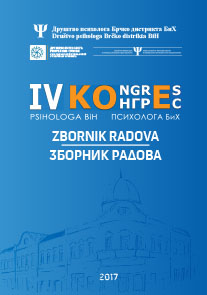Grupe za samopomoć i uzajamnu podršku za roditelje djece s poteškoćama u razvoju
Groups of self -help and support for parents of children with developmental disabilities
Author(s): Mario Karačić, Mirela Artuković, Kristina Sesar, Arta DodajSubject(s): Preschool education, Behaviorism, Health and medicine and law, Family and social welfare
Published by: Logotip
Keywords: children with developmental disabilities; group of self-help; group of support; parents of children with developmental disabilities;
Summary/Abstract: Researchers have noted that parents of children with developmental disabilities are at risk for increased levels of stress when compared with parents of typically developing children. Some of the stressors for those parents include difficulty accepting and adjusting to their child's disability, financial demand to be able to approve necessary care and medical equipment for a child, as well as limited access to information about their child's disability (Diehl, Moffitt, & Wade, 1991). Parents of children with specific developmental needs may have conflict between their individual need of love for children and fear that society will only perceive negative side of their child. Through the experience of stress and isolation from the world of „typical child“, parents of children with developmental disabilities often have higher level of anxiety, depression, loneliness and hopelessness (Seligman & Darling, 1989). These different types of social support proved to be effective in reducing level of parents stress and isolation to which they are faced (Santelli, Turnbull, Lerner & Marquis, 1993). The aim of this work is to present a model of self-help and supports for parents of children with disabilities in center of „Marija Naša-Nada“at Široki Brijeg. In general, the aim of this self- help and support group is to allow members to share a common problem, to provide them an emotional support, to create an environment of acceptance and encourage them in active coping with life's difficulties. Group leader, especially educated person, gives parents informational insight into the work of group, forms the group, and includes parents in groups meetings. Group meetings are based on active work with parent’s everyday difficulties and have aim to develop adaptive coping strategies of parents. Success of group support is evident through the high level of satisfaction of parents receiving information, exchanging experiences with other parents and getting professional support.
Journal: Zbornik radova Kongresa psihologa Bosne i Hercegovine
- Issue Year: 2017
- Issue No: 4
- Page Range: 99-112
- Page Count: 14
- Language: Croatian

